This article was co-authored by Muhammad Khan, MD, MPH and by wikiHow staff writer, Janice Tieperman. Dr. Muhammad Khan is a Gastroenterologist, with over 10 years of experience. Dr. Khan specializes in Pediatric Gastroenterology, Hepatology, and Nutrition, and has a special focus in Therapeutic Endoscopy. He received his Bachelor’s, Master’s, and Doctorate of Medicine degrees from The University of Utah. Dr. Khan completed his residency training at Eastern Virginia Medical School, where he was inducted into the prestigious Alpha Omega Alpha honor society. He then completed his fellowship training at Lucile Packard Children’s Hospital at Stanford University. He is a Fellow of both the American Society of Gastrointestinal Endoscopy (ASGE) and the North American Society for Pediatric Gastroenterology, Hepatology, and Nutrition (NASPGHAN).
There are 16 references cited in this article, which can be found at the bottom of the page.
wikiHow marks an article as reader-approved once it receives enough positive feedback. This article received 34 testimonials and 86% of readers who voted found it helpful, earning it our reader-approved status.
This article has been viewed 1,191,916 times.
Believe it or not, deworming isn’t just for pets. This process is for anyone with a parasite infection, whether it’s tapeworm, pinworm, hookworm, or something else. While these infections can be serious, they’re easy to treat and clear up with a doctor’s guidance. Don’t worry—we’ve answered all your frequently asked questions, so you can recover as quickly and efficiently as possible.
Steps
What medical treatments do I use for worms?
-
1Use an anthelmintic medication (aka a medicine used to destroy worms). Some anthelmintic medicines, like mebendazole, thiabendazole, and albendazole, starve and kill the worms. Other medicines, like ivermectin and praziquantel, paralyze the worms so they pass in your stool.[1] Ask your doctor about which medicine is the best option for you.
- Stop by your pharmacy to pick up a prescription if needed.[2] Note that some deworming medications are available over the counter, in particular medicines to treats pinworms.
-
2Take the medication for 1 to 3 days. Your treatment schedule might depend on the type of infection you have—ask your doctor for a more specific treatment plan.[3]
- Ask your doctor if your partner, roommates, and/or family members need to take the medication, too. Anyone you live with experiencing symptoms will likely need to take the medication at the same time as you.
What are some signs of worms?
-
1
-
2You experience stomach pain and your bowel movements are off. Worm parasites can take a big toll on your day-to-day life. You might experience diarrhea, have stomach pains that last longer than 2 weeks, or just feel super lousy.[12] In the passing days and weeks, you might also go through unexplained weight loss.[13]
-
3Try the tape test for 3 days. Pinworm eggs tend to hang around the anus.[14] Right after you wake up, stick and remove a piece of clear tape right next to your anus and set it aside in a bag. Keep collecting tape for 3 days before bringing the samples to your doctor, who can look over the tape for eggs.[15]
- Always do the tape test first thing in the morning, before you go to the bathroom or change into fresh clothes.
How can I prevent a future infection?
-
1Clean and thoroughly cook all of your food. Unfortunately, you can catch worms from unwashed produce, or raw/undercooked fish, beef, and pork.[18] Always wash your fruits and veggies, and cook any meat cuts to at an internal temperature of 145 to 165 °F (63 to 74 °C).[19]
- Cook ground meat to an internal temperature of at least 160 °F (71 °C).
- Experts suggest rubbing your fruits and veggies under a stream of running water. Clean off any firmer produce, like melons and cucumbers, with a clean vegetable brush. Then, dry everything off with a clean paper towel or cloth.[20]
-
2Wash your hands frequently with soap and water. Always wash up before preparing any meals or snacks, and whenever you use the restroom.[21] [22] Experts advise washing your hands for 20 seconds, so you get a really thorough clean.[23]
How else can I stay healthy after a worm infection?
-
1Keep your home clean. Wash any old bedding, sleepwear, and towels where eggs might have collected. Then, vacuum all over your home, especially your sleeping area. Experts also recommend damp dusting around your home, especially near any mattresses, bathroom surfaces, and play areas. To be extra safe, always throw out your damp dusting cloth once you’re done with it, so you don’t accidentally spread eggs around.[24]
- To damp dust your home, simply dip a cloth in a cleaning solution and squeeze out any excess liquid. Then, wipe down any dirty surfaces with the cloth.[25]
- Some parasites, like threadworms, can survive for about 2 weeks around your home. Regular cleaning and laundry cycles can help prevent any new infections.[26]
-
2Practice good hygiene. Take a bath or clean off your anus each morning for 2 weeks, which will get rid of any worm eggs. Also, aim to change into a clean pair of underwear each morning, and wear a close-fitting pair to bed each night. This way, you won’t be as tempted to scratch your bottom. In general, try to wash your hands frequently, and ditch any habits like nail-biting.[27]
Expert Q&A
-
QuestionDo humans normally have worms?
 Muhammad Khan, MD, MPHDr. Muhammad Khan is a Gastroenterologist, with over 10 years of experience. Dr. Khan specializes in Pediatric Gastroenterology, Hepatology, and Nutrition, and has a special focus in Therapeutic Endoscopy. He received his Bachelor’s, Master’s, and Doctorate of Medicine degrees from The University of Utah. Dr. Khan completed his residency training at Eastern Virginia Medical School, where he was inducted into the prestigious Alpha Omega Alpha honor society. He then completed his fellowship training at Lucile Packard Children’s Hospital at Stanford University. He is a Fellow of both the American Society of Gastrointestinal Endoscopy (ASGE) and the North American Society for Pediatric Gastroenterology, Hepatology, and Nutrition (NASPGHAN).
Muhammad Khan, MD, MPHDr. Muhammad Khan is a Gastroenterologist, with over 10 years of experience. Dr. Khan specializes in Pediatric Gastroenterology, Hepatology, and Nutrition, and has a special focus in Therapeutic Endoscopy. He received his Bachelor’s, Master’s, and Doctorate of Medicine degrees from The University of Utah. Dr. Khan completed his residency training at Eastern Virginia Medical School, where he was inducted into the prestigious Alpha Omega Alpha honor society. He then completed his fellowship training at Lucile Packard Children’s Hospital at Stanford University. He is a Fellow of both the American Society of Gastrointestinal Endoscopy (ASGE) and the North American Society for Pediatric Gastroenterology, Hepatology, and Nutrition (NASPGHAN).
Board Certified Gastroenterologist Worms aren't all that common if you live in an area with clean water and strict meat/poultry regulations.
Worms aren't all that common if you live in an area with clean water and strict meat/poultry regulations. -
QuestionWhat is the most common type of parasite?
 Muhammad Khan, MD, MPHDr. Muhammad Khan is a Gastroenterologist, with over 10 years of experience. Dr. Khan specializes in Pediatric Gastroenterology, Hepatology, and Nutrition, and has a special focus in Therapeutic Endoscopy. He received his Bachelor’s, Master’s, and Doctorate of Medicine degrees from The University of Utah. Dr. Khan completed his residency training at Eastern Virginia Medical School, where he was inducted into the prestigious Alpha Omega Alpha honor society. He then completed his fellowship training at Lucile Packard Children’s Hospital at Stanford University. He is a Fellow of both the American Society of Gastrointestinal Endoscopy (ASGE) and the North American Society for Pediatric Gastroenterology, Hepatology, and Nutrition (NASPGHAN).
Muhammad Khan, MD, MPHDr. Muhammad Khan is a Gastroenterologist, with over 10 years of experience. Dr. Khan specializes in Pediatric Gastroenterology, Hepatology, and Nutrition, and has a special focus in Therapeutic Endoscopy. He received his Bachelor’s, Master’s, and Doctorate of Medicine degrees from The University of Utah. Dr. Khan completed his residency training at Eastern Virginia Medical School, where he was inducted into the prestigious Alpha Omega Alpha honor society. He then completed his fellowship training at Lucile Packard Children’s Hospital at Stanford University. He is a Fellow of both the American Society of Gastrointestinal Endoscopy (ASGE) and the North American Society for Pediatric Gastroenterology, Hepatology, and Nutrition (NASPGHAN).
Board Certified Gastroenterologist One of the most common parasites is a pinworm—they get spread through bad hygiene, which is why young kids tend to get them more. Pinworms are ultimately harmless, but they can cause a lot of itching around the bottom.
One of the most common parasites is a pinworm—they get spread through bad hygiene, which is why young kids tend to get them more. Pinworms are ultimately harmless, but they can cause a lot of itching around the bottom. -
QuestionWhat are signs of worms in humans?
 Muhammad Khan, MD, MPHDr. Muhammad Khan is a Gastroenterologist, with over 10 years of experience. Dr. Khan specializes in Pediatric Gastroenterology, Hepatology, and Nutrition, and has a special focus in Therapeutic Endoscopy. He received his Bachelor’s, Master’s, and Doctorate of Medicine degrees from The University of Utah. Dr. Khan completed his residency training at Eastern Virginia Medical School, where he was inducted into the prestigious Alpha Omega Alpha honor society. He then completed his fellowship training at Lucile Packard Children’s Hospital at Stanford University. He is a Fellow of both the American Society of Gastrointestinal Endoscopy (ASGE) and the North American Society for Pediatric Gastroenterology, Hepatology, and Nutrition (NASPGHAN).
Muhammad Khan, MD, MPHDr. Muhammad Khan is a Gastroenterologist, with over 10 years of experience. Dr. Khan specializes in Pediatric Gastroenterology, Hepatology, and Nutrition, and has a special focus in Therapeutic Endoscopy. He received his Bachelor’s, Master’s, and Doctorate of Medicine degrees from The University of Utah. Dr. Khan completed his residency training at Eastern Virginia Medical School, where he was inducted into the prestigious Alpha Omega Alpha honor society. He then completed his fellowship training at Lucile Packard Children’s Hospital at Stanford University. He is a Fellow of both the American Society of Gastrointestinal Endoscopy (ASGE) and the North American Society for Pediatric Gastroenterology, Hepatology, and Nutrition (NASPGHAN).
Board Certified Gastroenterologist Diarrhea and frequent abdominal pain are common symptoms of worms. You can also spot worms in your bowel movements.
Diarrhea and frequent abdominal pain are common symptoms of worms. You can also spot worms in your bowel movements.
References
- ↑ https://patient.info/skin-conditions/itchy-bottom-pruritus-ani/worm-medicines-anthelmintics
- ↑ https://www.nhs.uk/conditions/worms-in-humans/
- ↑ https://www.nhs.uk/conditions/worms-in-humans/
- ↑ https://www.mayoclinic.org/diseases-conditions/tapeworm/diagnosis-treatment/drc-20378178
- ↑ https://my.clevelandclinic.org/health/diseases/15240-roundworms
- ↑ https://www.mayoclinic.org/diseases-conditions/pinworm/diagnosis-treatment/drc-20376386
- ↑ https://www.cdc.gov/parasites/hookworm/treatment.html
- ↑ https://pubmed.ncbi.nlm.nih.gov/29473532/
- ↑ https://pubmed.ncbi.nlm.nih.gov/17472487/
- ↑ Muhammad Khan, MD, MPH. Board Certified Gastroenterologist. Expert Interview. 24 August 2021.
- ↑ https://www.nhs.uk/conditions/worms-in-humans/
- ↑ Muhammad Khan, MD, MPH. Board Certified Gastroenterologist. Expert Interview. 24 August 2021.
- ↑ https://www.nhs.uk/conditions/worms-in-humans/
- ↑ Muhammad Khan, MD, MPH. Board Certified Gastroenterologist. Expert Interview. 24 August 2021.
- ↑ https://www.mayoclinic.org/diseases-conditions/pinworm/diagnosis-treatment/drc-20376386
- ↑ https://www.mayoclinic.org/diseases-conditions/tapeworm/diagnosis-treatment/drc-20378178
- ↑ https://www.mayoclinic.org/diseases-conditions/e-coli/symptoms-causes/syc-20372058
- ↑ https://www.nhs.uk/conditions/worms-in-humans/
- ↑ https://www.fsis.usda.gov/food-safety/foodborne-illness-and-disease/pathogens/parasites-and-foodborne-illness
- ↑ https://www.fda.gov/consumers/consumer-updates/7-tips-cleaning-fruits-vegetables
- ↑ Muhammad Khan, MD, MPH. Board Certified Gastroenterologist. Expert Interview. 24 August 2021.
- ↑ https://www.nhs.uk/conditions/worms-in-humans
- ↑ https://www.cdc.gov/handwashing/when-how-handwashing.html
- ↑ https://patient.info/skin-conditions/itchy-bottom-pruritus-ani/threadworms
- ↑ http://www.sodexoremotesites.com/hse/downloads/great-training-kit/CL24%20Damp%20Dusting.pdf
- ↑ https://patient.info/skin-conditions/itchy-bottom-pruritus-ani/threadworms
- ↑ https://patient.info/skin-conditions/itchy-bottom-pruritus-ani/threadworms
- ↑ https://www.mayoclinic.org/diseases-conditions/tapeworm/diagnosis-treatment/drc-20378178
- ↑ https://www.nhs.uk/conditions/worms-in-humans/
About This Article
To deworm yourself, try mixing a banana with some lemon juice and drinking it. The banana acts like a natural laxative, and the lemon juice will kill the worms. You can also eat 10-15 pumpkin seeds a day since pumpkin seeds contain a compound that kills worms. Eating pineapple every day is also an easy way to combat the worms, which will die because of the acidity. To learn how to deworm yourself using medication, scroll down!

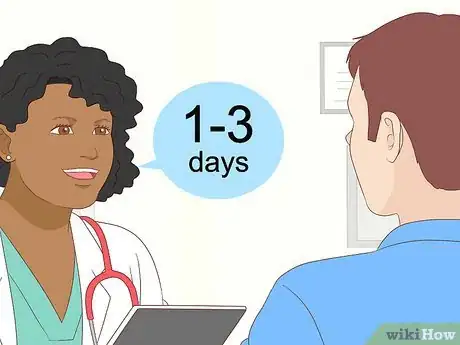
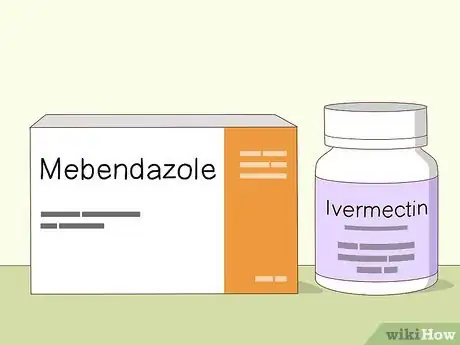
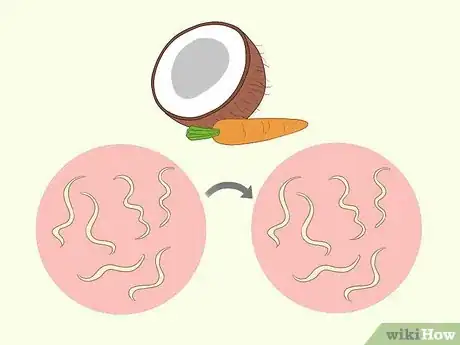
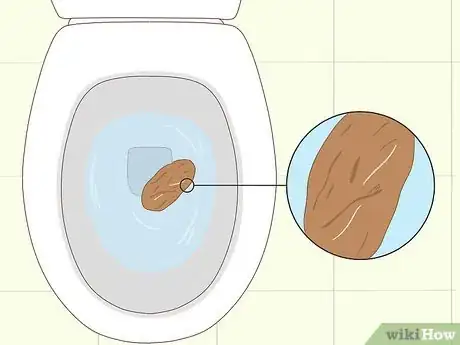

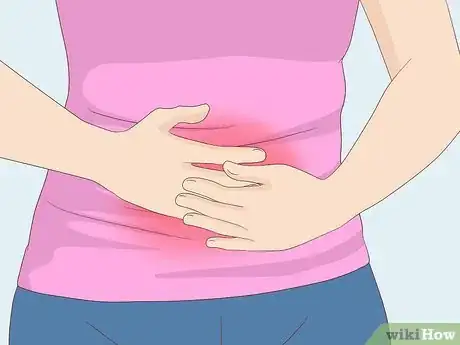
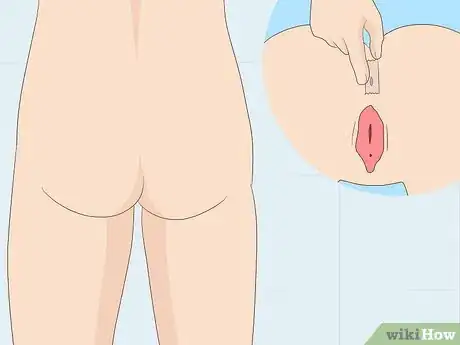
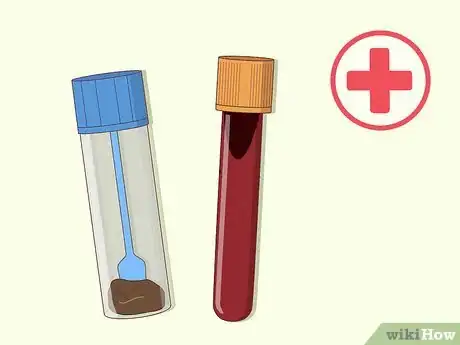
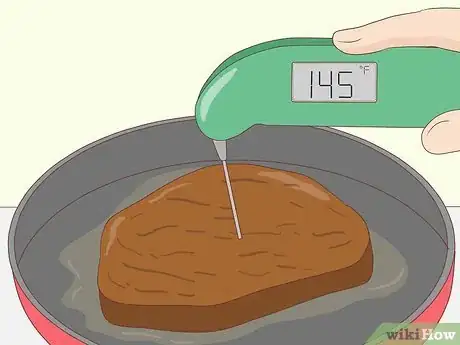
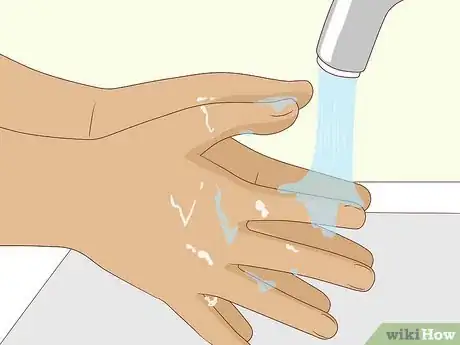
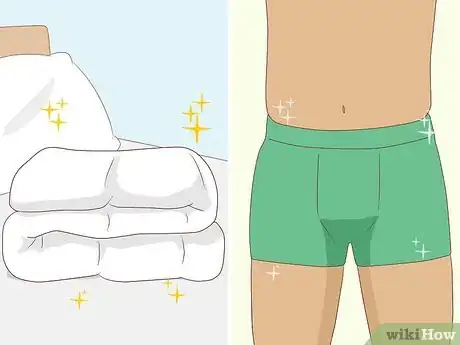
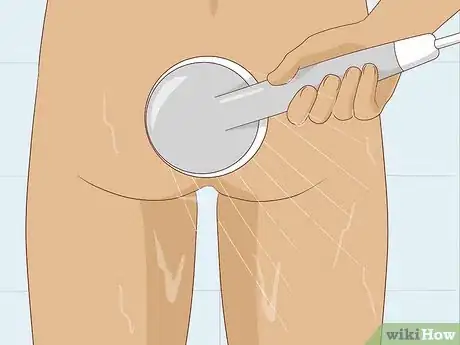
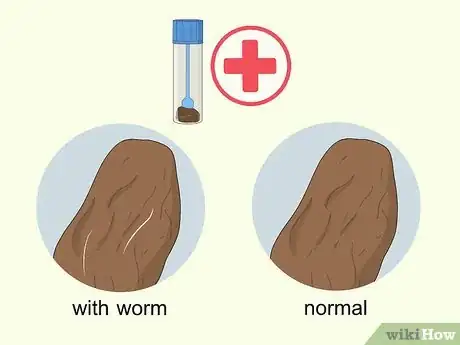
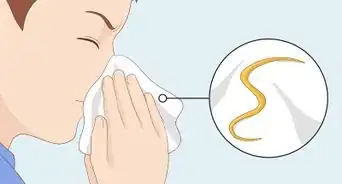
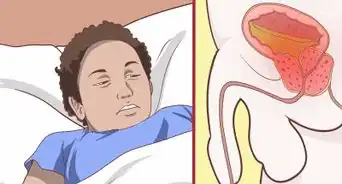

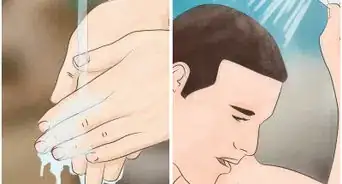


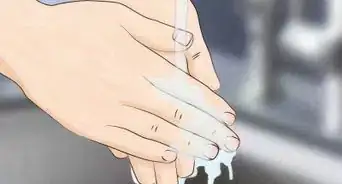


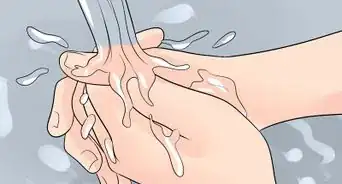











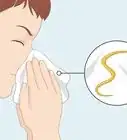
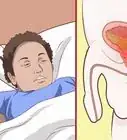

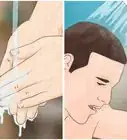




































Medical Disclaimer
The content of this article is not intended to be a substitute for professional medical advice, examination, diagnosis, or treatment. You should always contact your doctor or other qualified healthcare professional before starting, changing, or stopping any kind of health treatment.
Read More...